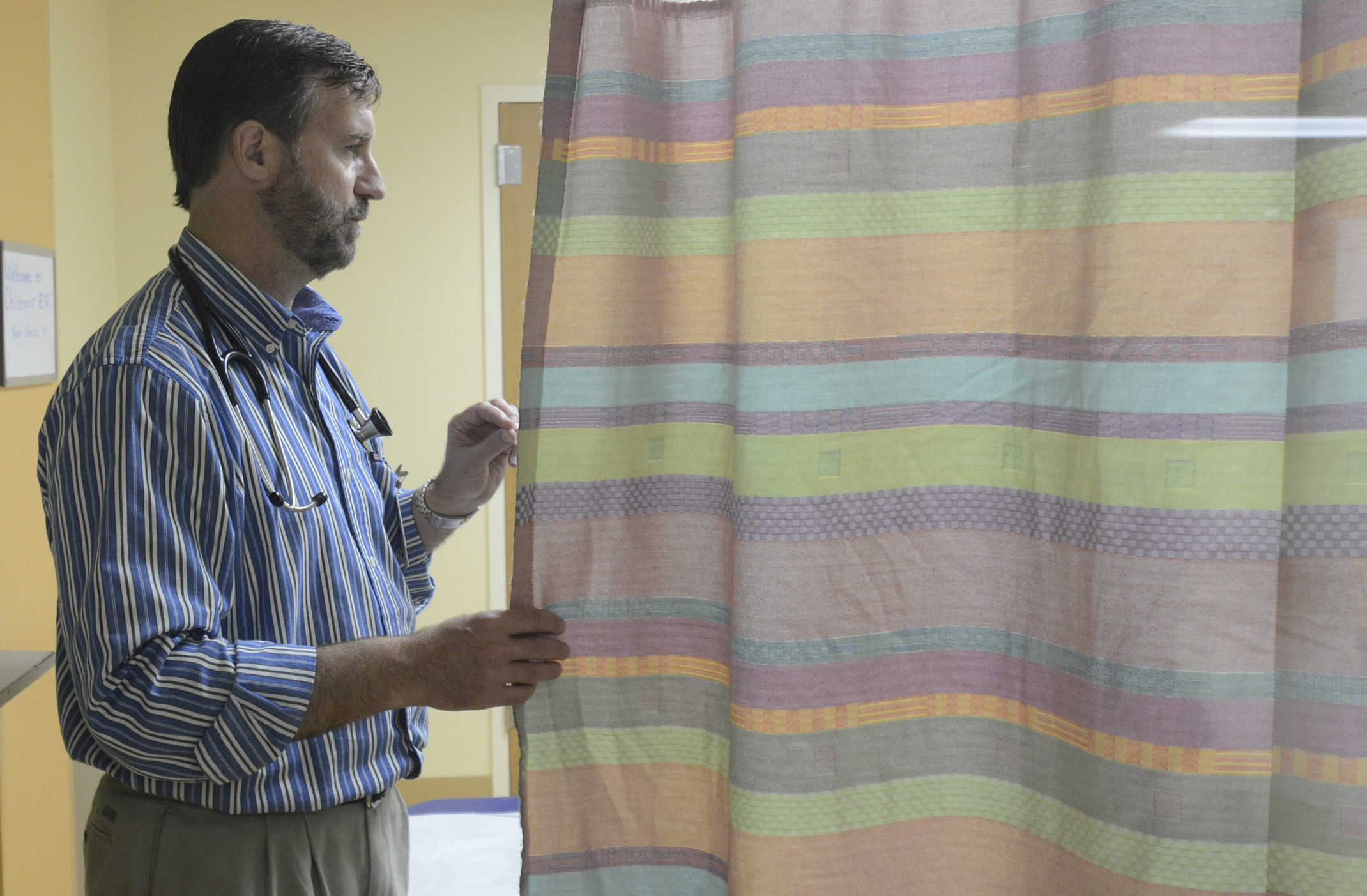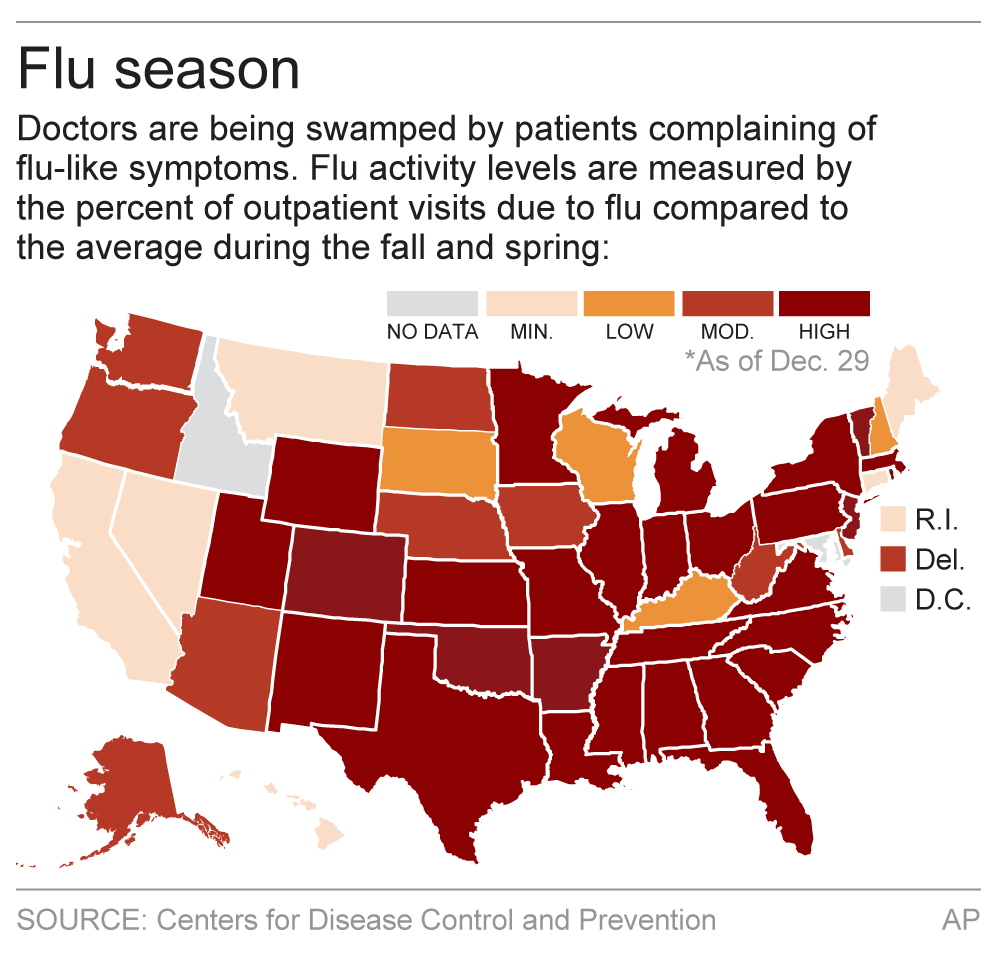Epidemic: More in Chattanooga had the flu this December than during than in the previous 3
Friday, January 1, 1904
Dr. Thomas Bruns knows you will prefer the good news, but perhaps it's best to start with the bad: You have the flu.
That has been a common diagnosis from Bruns at Erlanger's T.C. Thompson Children's Hospital the last couple of months, as it has been at hospitals across the nation during this flu season. On Friday, officials deemed the recent flu outbreak an epidemic. But should a patient receive such a diagnosis, doctors like Bruns suggest staying out of public settings, and that includes work.
In fact, Bruns said, workers who come down with the flu should not return to their cubicles until they have been well for two days.
"I think a lot of people would like that," Bruns said.
Doctors at T.C. Thompson diagnosed 52 confirmed cases of influenza A virus last month, and Bruns said the illness seems more widespread this year than it did even in 2009, when the H1N1 virus spread through the country. Some health officials disagree with that assessment, but precise figures are almost impossible to find. Still, the rise in cases at T.C. Thompson seems representative of the rest of the country.
Doctors do not report every flu case that they see, but officials at the Chattanooga-Hamilton County Health Department track the illness by looking at how many people report flulike illnesses at local physician offices, clinics and emergency departments. Based on that survey, more people in Chattanooga reported having the flu this December than they did during that month the previous three years.
The flu is widespread in Tennessee, Georgia and 45 other states, officials from the Centers for Disease Control and Prevention said Friday. The government does not track a running figure of adult deaths from the flu but estimates that 24,000 people die in an average year. This year, 20 children have been reported dead as a result of the flu.
Bruns said that children who get the flu can also suffer from pneumonia and brain swelling, so parents should look for danger signs: a child refusing to eat and drink, acting more irritable than usual and getting a fever after he or she seems to get better.
Two children have died in Georgia. But much like in Chattanooga, officials in that state don't track the total number of reported flu cases -- for adults or children. The case is the same in Tennessee.
To prevent the flu, health officials recommend basic precautions: wash your hands, don't touch your face, cover your nose and mouth when you sneeze and cough, sleep, exercise and avoid close contact with sick people.
Of course, officials say receiving a flu shot still remains the best way to prevent the illness. The vaccine is about 62 percent effective, which means that if someone receives the vaccine, he or she is 62 percent less likely to get the flu.
But actually getting the shot can be a challenge. About 130 million doses of the flu vaccine were distributed this year, and at least 112 million vaccines have been used.
Bruns, the T.C. Thompson doctor, said his wife tried to get the vaccine but found out that many local pharmacies are out.
Phil Smith, a pharmacist at Access Family Pharmacy, said he has about 100 flu shots left. The pharmacy also has some Tamiflu pills that also are effective. But customers will have to get the vaccines quickly: New shipments are on backorder.
"Everybody's scrambling to get that shot," he said.
Staff writer Tim Omarzu contributed to this report.


